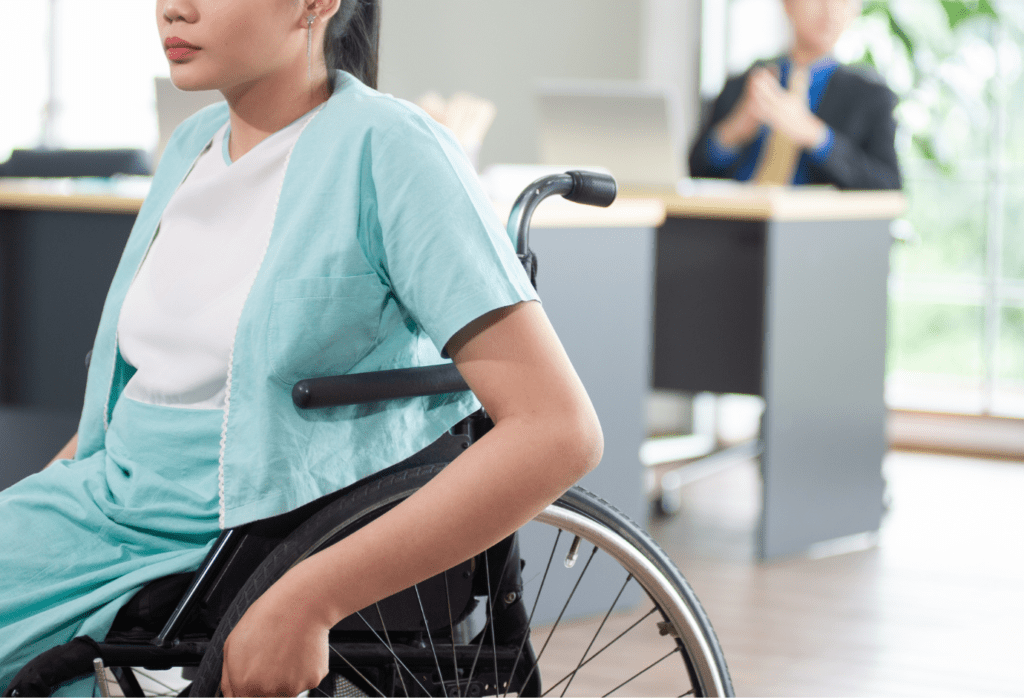Sexism and ableist attitudes are leading to a shocking number of Australian women with disability experiencing violence, a new study has revealed.
Sixty-five percent of Australian women and girls with disabilities have experienced some sort of violence. They are also twice as likely to experience physical and sexual violence compared to women and girls without disabilities.
The study, from violence against women and children national prevention agency, Our Watch and Women with Disabilities Victoria, revealed that ableist ideas such as the belief that women and girls with disabilities are ‘vulnerable’, ‘incapable,’ or ‘child-like’, alongside sexist attitudes, are contributing to the high rates of violence and abuse experienced by women and girls with disabilities.
The study is part of a new 108-page resource, Changing the Landscape, launched today, that showed a combination of gender inequality and ableism exists across all aspects of society, including in the workplace, schools, at medical and disability services, governments and communities.
Our Watch CEO Patty Kinnersly believes that changing these confronting figures can only happen if everyone contributes to stopping violence before perpetrators inflict harm on women and girls with disabilities.
“This is not a problem just for the disability community, it is everyone’s problem, and we all must be part of the solution, to end this pervasive and unacceptable abuse,” she said in a statement.
“Violence against women and girls with disabilities is not perpetrated by a ‘few bad apples,’ it looks like street harassment, controlling behaviours by paid and unpaid carers, doctors and policy-makers taking away reproductive choices, and institutional violence.”
“The evidence shows that by addressing sexist and ableist attitudes, practices and structures we can stop violence against women and girls with disabilities before it starts.”
“It means challenging ableist attitudes, such as the belief women and girls with disabilities need to be protected or excusing a carer’s abuse because they are ‘burnt-out.”
“It means workplaces championing equality and increasing the number of women with disabilities in leadership roles, schools being accessible and inclusive, and media amplifying the voices and stories of women and girls with disabilities.”
“This is not just about ending the high rates of violence against women and girls with disabilities, but also about building a society where all women are valued, respected and have equal rights and opportunities,” Kinnersly added.
“Negative stereotypes, assumptions and attitudes about people with disabilities can directly contribute to, and motivate, the perpetration of violence against this group,” report read.
2015 Young Australian of the Year, Drisana Levitzke-Gray, told The Daily Liberal she has experienced exclusion due to her deafness and gender.
“At university a lecturer believed that because I was deaf I wasn’t able to read or write English,” the 29-year old said. “I had to reassure them that I was accepted into the course for a reason: I could do the work.”
The Perth-based disability rights campaigner said that often, people without disabilities believed themselves to have good intentions, but that their pity and assumptions of protection may cause harm.
“Women with disabilities want to make their own choices, but often they are being made for us.”
Nadia Mattiazzo, CEO of Women with Disabilities Victoria said the resource was created after intensive consultation with people from across the country who shared their stories.
“Violence and discrimination are huge experiences in our lives,” she said. “That is why our organisation has dedicated attention to preventing them.”
“It is a reminder how disability and gender discrimination impact every part of this country and take many forms, especially when they combine with colonisation, racism and other forms of discrimination. “
She added that her organisation is pleased to be advancing the need for a national focus alongside Our Watch.
“We are hopeful to see government and community service action spring from this resource.”
The resource is included as a recommendation for the Disability Royal Commission and part of Our Watch’s submission into the Royal Commission into Violence, Abuse, Neglect and Exploitation of People with Disability, which is due for release by September 2023.
In Australia, one in five people have some form of disability. Among the female population, roughly 18 percent have one or more form of disability.


